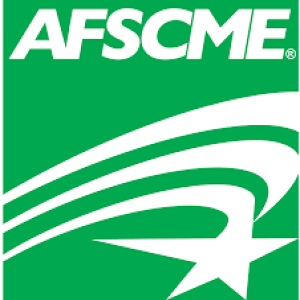
On this day in labor history, the year was 1969.
That was the day AFSCME sanitation workers in Charlotte, North Carolina walked off the job.
More than 85% of the sanitation workers were black in this predominantly white Southern city. It was their third garbage strike in a year.
State statutes prohibited union contracts in municipal agencies.
But AFSCME was determined to win union recognition and establish an agreement with the city.
Southern Director for AFSCME, James Pierce thundered, “We’ll bring in whatever help we can get if the city tries to break the strike.
We can turn this place into a Memphis or a Charleston in a few days.”
Of course, Pierce was referring to two victorious strikes by black workers that had rocked the South within the past year.
Black sanitation workers in Memphis walked out in a historic strike in the spring of 1968.
Hospital workers in Charleston, South Carolina had just won their strike days earlier.
Pierce outlined the issues at stake.
According to the Asheville Citizen-Times, the Charlotte City Council had adopted its final budget without providing dues checkoff, without adhering to established grievance procedures or seniority rights and without adding important safety precautions for garbage collection.
At first, Charlotte’s mayor asserted claims that the strike was about dues checkoff.
But Pierce shot back about broken promises regarding the establishment of safety committees and non-discrimination enforcement.
By the end of the month, a tentative agreement was in place. Strikers won all demands, except the dues check off.
But as hospital workers soon found in Charleston, South Carolina, the city council refused to carry out its agreement with the union.
Sanitation workers in Charlotte would strike twice unsuccessfully over the next year and a half.
More Episodes
 2024-10-21
2024-10-21
 2024-10-18
2024-10-18
 2024-10-17
2024-10-17
 2024-10-16
2024-10-16
 2024-10-15
2024-10-15
 2024-10-14
2024-10-14
 2024-10-14
2024-10-14
 2024-10-10
2024-10-10
 2024-10-09
2024-10-09
 2024-10-08
2024-10-08
 2024-10-07
2024-10-07
 2024-10-06
2024-10-06
 2024-10-06
2024-10-06
Create your
podcast in
minutes
- Full-featured podcast site
- Unlimited storage and bandwidth
- Comprehensive podcast stats
- Distribute to Apple Podcasts, Spotify, and more
- Make money with your podcast
It is Free
- Privacy Policy
- Cookie Policy
- Terms of Use
- Consent Preferences
- Copyright © 2015-2024 Podbean.com




